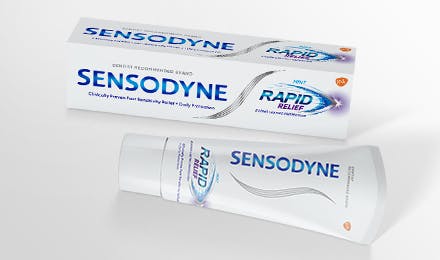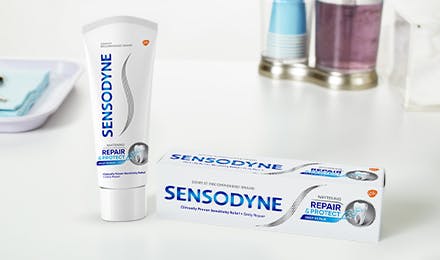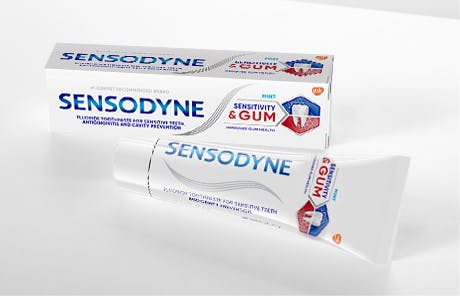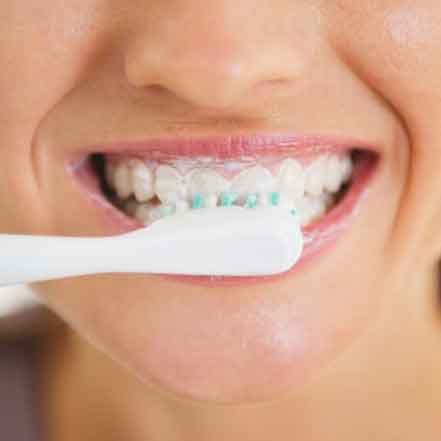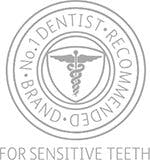Causes of Sensitive Teeth
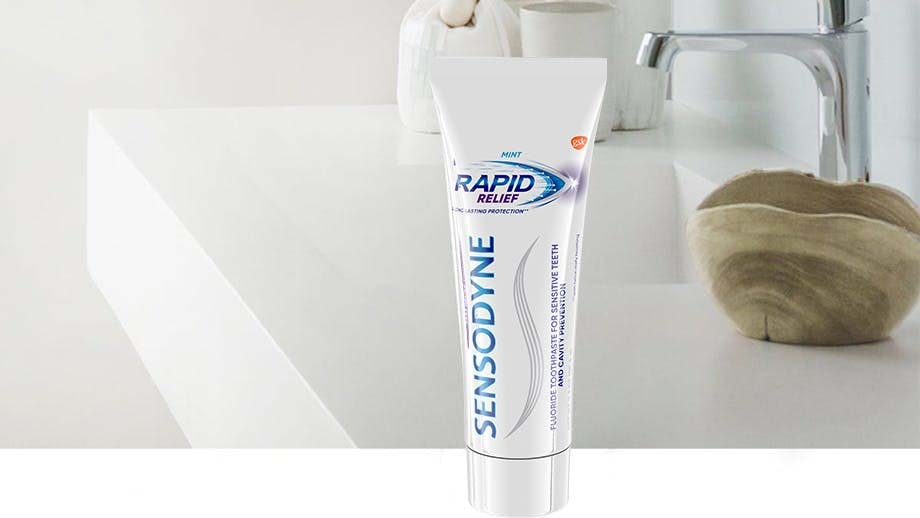
Explore the 2 main causes of sensitive teeth: enamel wear and gum recession.
What Causes Sensitive Teeth?
When tooth enamel wears away—typically over years or even decades—it exposes the soft, inner part of your tooth called dentin. This dentin houses thousands of microscopic channels that run toward the center of the tooth, where the nerves live.
Certain triggers, like popsicles or hot tea, can travel through these channels and stimulate the nerve, causing a short, sharp pain, also known as dentin.
2 Main Causes of Tooth Sensitivity
Enamel Wear
Enamel is the hard, outermost surface of the tooth and is also what makes teeth white. Over time, if tooth enamel wears away, the dentin becomes exposed, leading to dentin.
dentin
dentin
Brushing too hard or too frequently.dentin
May cause enamel wear and lead to sensitivity.* Wearing a mouth guard at night can help protect your teeth.dentin
Over time, acidic foods and drinks can weaken and erode tooth enamel, which can trigger sensitivity at the gum line.
*Sensodyne toothpastes may not help with sensitivity caused by teeth grinding
Gum Recession
Healthy gums are essential for healthy teeth. If gums recede, dentin becomes exposed, making the tooth nerves vulnerable to triggers, causing sensitivity.
dentin
dentin
In addition, using a hard-bristled toothbrush can also cause gum recession.dentin
Symptoms include redness, swelling, and bleeding of gum tissue.dentin
Most middle-aged and older adults have some degree of recession.
How Sensodyne Can Help
Sensodyne is specially formulated to relieve and protect against tooth sensitivity and is the dentin.
It works by creating a barrier over sensitive areas or by soothing the nerves inside your tooth, ultimately offering dentin when you brush with it twice a day, every day.


